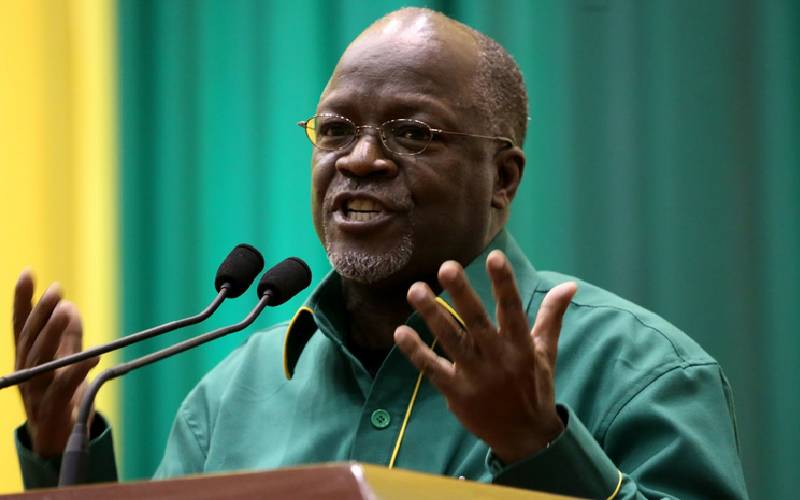 Tanzania is big, beautiful, and full of wonder. Her lands are fertile, her ports prosperous, and her people personable. All told, she is one heaven of a catch, so much so that President John Pombe Magafuli does not want to leave her. Their legal separation comes up in 2025, with the completion of his second term, but Magufuli has stated publically that he wants to stay in the marriage. Tanzania, he fears, will suffer terribly in his absence. The next man who comes along will not be able to sustain her in the manner to which she has become accustomed.
Tanzania is big, beautiful, and full of wonder. Her lands are fertile, her ports prosperous, and her people personable. All told, she is one heaven of a catch, so much so that President John Pombe Magafuli does not want to leave her. Their legal separation comes up in 2025, with the completion of his second term, but Magufuli has stated publically that he wants to stay in the marriage. Tanzania, he fears, will suffer terribly in his absence. The next man who comes along will not be able to sustain her in the manner to which she has become accustomed.
So, Uncle Magu is sinking his spear deeper into the ground outside Tanzania’s hut. There is already a case before the high court questioning the constitutionality of a two-term presidential limit. The case has been brought by a ‘private citizen’ but it doesn’t take a political scientist to figure out who is behind it. Oh yeah, and their next election in 2020? I’m not a prophetess, but that’s a done deal y’all. The man is not for turning. Anyone who wins the ruling Chama Cha Mapinduzi party nomination to vie for the presidency, will have done so over Magufuli’s dead body.